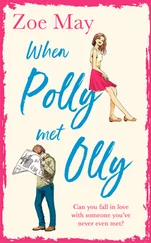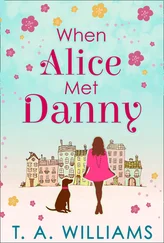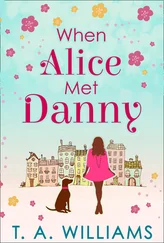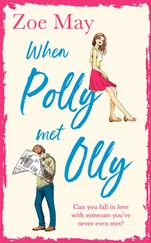We had some inherited family silver and Michael decided to travel up to London in the hope of getting a better price for it there. He set off on the train, clutching a large holdall full of silver salvers, bowls and goblets, and made his way to a smart shop in Bond Street that we’d read about in the newspapers. He straightened his tie and brushed down his collar before walking in and placing the holdall on a counter.
‘Are you interested in buying some silver?’ he asked, unwrapping a couple of the items on top.
‘Plate,’ the man said, after a quick glance.
‘Pardon?’
‘They’re silver plate. Not solid silver.’ He picked them up and turned them over. ‘Not inscribed either. They’d have been worth more if they were.’
He made an offer for the lot that was only a fraction of what we’d thought they were worth, but with the rent overdue, and having come all that way, Michael felt he had no choice but to accept.
We didn’t tell our families about the trouble we were having but they must have realised, because every time they visited us another antique chair would be missing from the sitting room or there would be a rectangular space on the wall where a picture used to hang. My father dealt with the problem in a typical brusque farmer’s style: he gave us forty of his ewes and bought us a couple of Sussex rams to go with them.
‘Thanks, Dad,’ I said doubtfully.
He meant well, but it was then that our nightmare with sheep began. The soft, wet ground at Greatwood meant they kept getting sores and infections in their feet and needed to be rounded up daily for treatment. Some silly blighter would get its head stuck in a fence the minute you turned your back, while another would roll over and be unable to get up again. The rams were even worse. As soon as we set foot in their field they would charge at us full pelt and we had to hurl ourselves out of the way at the last minute to avoid being sent flying. Despite being a farmer’s daughter, I’d had no idea how high-maintenance sheep were. They really did seem to have a death wish, getting themselves into life-threatening situations on a daily basis.
The next money-making scheme was suggested by a chap called Stan in the local pub, who persuaded us to buy thirty goslings from the market, raise them, and sell them just before Christmas. We put them in a field to graze, not realising that they would have to be brought indoors and fattened to get them to the size customers expect of their Christmas roast. When I eventually tried to feed them up, too late in the day, they turned up their beaks and refused to eat anything at all. I had to cancel our Christmas orders and eventually passed most of them on to the Goose Rescue Centre, apart from five that we kept.
Amongst those five was Horrible Horace, a deformed goose my brother had dumped on us. Horace may have been crooked and bent, but his disability didn’t stop him flying at any children who came nearby. He thought he was a dog and would rush up to greet visitors, honk whenever the dogs barked and accompany us on walks. All our attempts to pass Horace on to other people failed, so we were stuck with yet another difficult, eccentric, bloody-minded animal to care for.
As if our financial troubles weren’t enough, word began to spread that we were prepared to step in and help with sick, temperamental or abandoned ex-racehorses. It seemed there were lots of people out there desperately trying to find a home for horses that were too old, past their prime or that hadn’t ever fulfilled their potential. Thoroughbreds need experienced handlers because many of them are unused to being ridden by anyone but a professional jockey and, what’s more, they are expensive to keep. Many of them need to be reschooled if they are ever to have a second career, but this took time, money and expertise.
Michael and I couldn’t possibly accommodate every single horse that was offered to us, but we spent hours on the telephone giving advice and trying to find potential owners for each animal, because the alternative was too awful to contemplate. For such beautiful, intelligent animals to be discarded simply because they couldn’t run fast enough was not morally acceptable.
As a farmer’s daughter I know there are hard realities to be faced in livestock breeding. My blunt Yorkshire father once said, ‘The very word “livestock” implies “deadstock” and if you can’t handle it, you’d better do something else with your life.’ But my heart always melted when a seriously ill or badly treated horse was brought to us. I could never turn them away.
In the first year at Greatwood, there was a mare called Kay whose owner hadn’t been able to afford proper medical care for her. Kay was in a lot of pain when she came to us and kept trying to kick up at her stomach. The owner said she’d tried to train her out of kicking herself but to no avail. But why was she doing it? What was the problem? I called the vet, who detected a sizeable growth in her stomach, and told me that sadly it was inoperable. There was nothing he could do. It was a horrible night, with rain lashing down and gale-force winds ripping around the barn. We had no alternative but to have Kay put down, with the other horses standing round watching. There was a collective whinny as she fell to the floor and a few came over to sniff her but most carried on eating their hay. They didn’t know her, so weren’t directly affected. As we left the barn, I felt unutterably sad for that poor horse, who’d obviously been suffering for some time. Vets’ bills are expensive. That’s why we had to be sure that when we rehomed horses, we only did so with people who could afford to keep them properly. We couldn’t risk any horses that passed through our hands ending up like Kay, or Betty, or Charlie.
Our own financial situation went from bad to worse. Each new bill was greeted with much head-scratching and the scribbling of frantic sums on the backs of envelopes, and every month rent day loomed like a sick headache. How had we got ourselves into such a pickle? The inheritance from Michael’s aunt and the money from the sale of our house had long gone, and we had very few, tiny sources of income. Then one day, I got a phone call that gave us a glimmer of hope.
‘My name’s Vivien McIrvine,’ the voice said. ‘I’m Vice President of the International League for the Protection of Horses. I’ve been hearing a lot about you and everything you are trying to do for racehorses and I wanted to tell you that I’m full of admiration for the work you’re doing.’
‘Thank you. That’s good to hear. But I’m afraid it’s just a drop in the ocean.’
We chatted for a while about the horses we had at that time, the ones looking for new homes and the ones we’d managed to rehome already, then she got to the purpose of her call.
‘The work you are doing with racehorse welfare is invaluable and rare. You must carry on and, as I see it, the only way that you can do that is if you put it on a firm footing and become a registered charity.’
Michael and I had already been considering this option but the call from an icon of horse welfare pushed us into thinking about it more seriously. It was a great compliment to hear of her admiration for our work and for a few days afterwards we mulled it all over. We knew there was a chance our application wouldn’t be successful anyway, but if it were, we’d become accountable to the charity commissioners and would have to be much more professional about the way we managed what had been, until then, an instinctive kind of operation. But we really had no choice. We had already become heavily involved in not-for-profit work on behalf of ex-racehorses by funding it all ourselves, but we couldn’t go on like that because our funds were rapidly evaporating and we would have become insolvent. That would have brought an end to our work and most certainly an end to the lives of the horses in our care.
Читать дальше
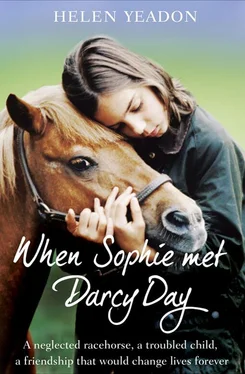
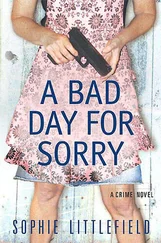
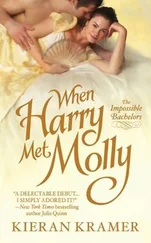
![Джулиан Ассанж - Google не то, чем кажется [отрывок из книги «When Google Met WikiLeaks»]](/books/405461/dzhulian-assanzh-google-ne-to-chem-kazhetsya-otryvok-thumb.webp)



